NIL
Womens sports is booming. Can it continue ethically?
It seems you can’t look anywhere without hearing about the growth and profitability of women’s sports. The refrain has gone from “no one watches women’s sports” to “everyone watches women’s sports” in a matter of just a few years. For longtime fans of women’s basketball, women’s soccer and women’s hockey, the meteoric growth of leagues […]
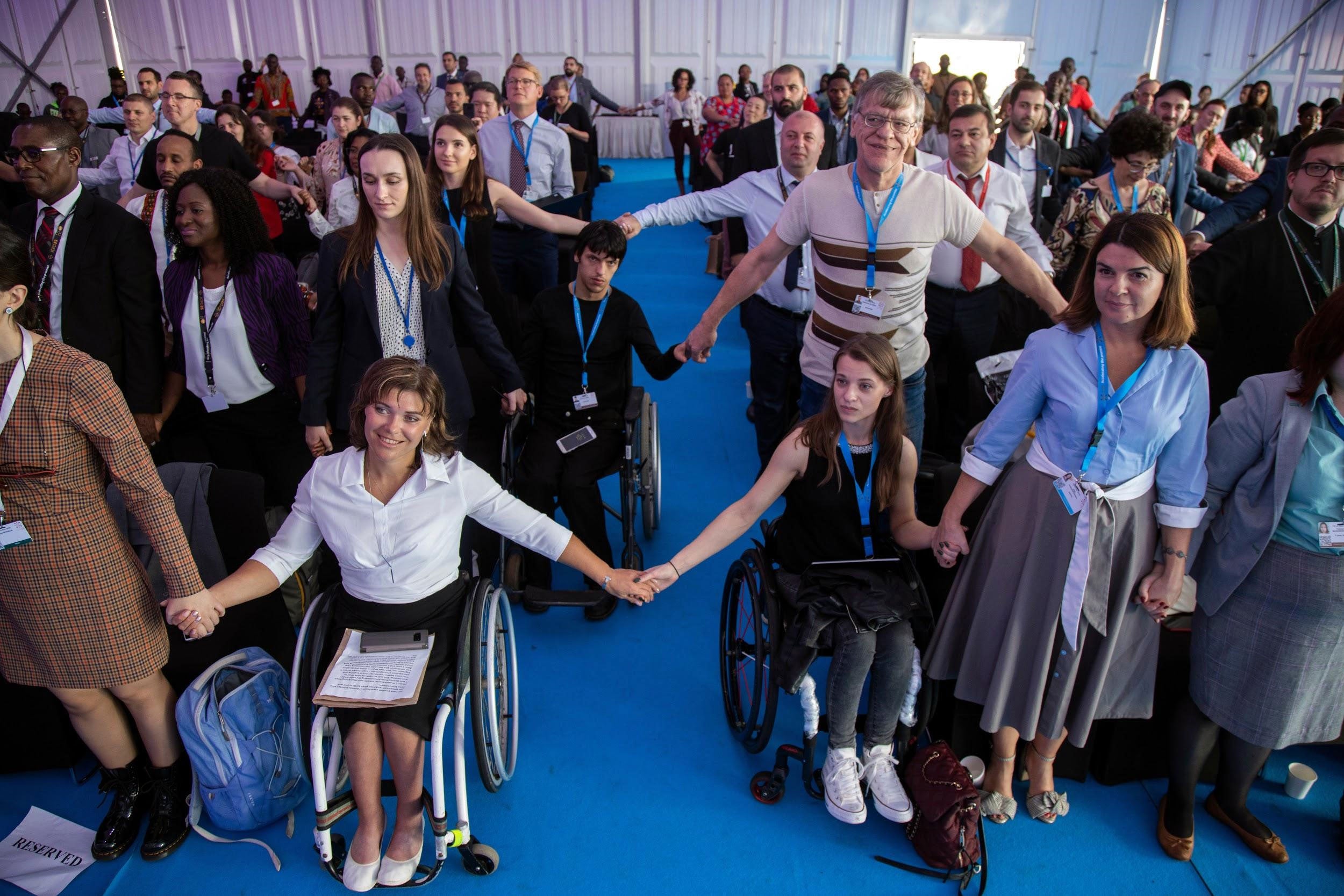
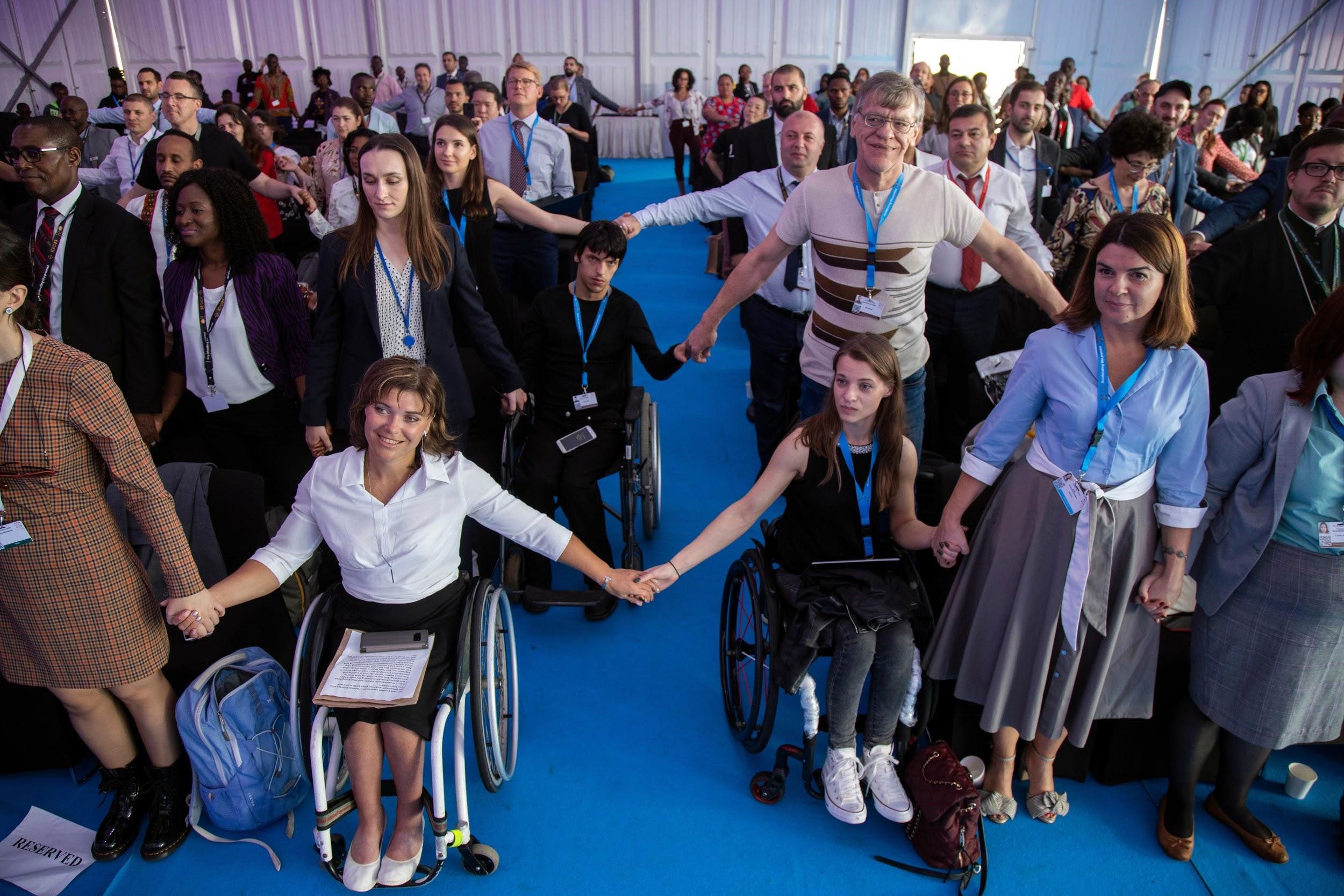
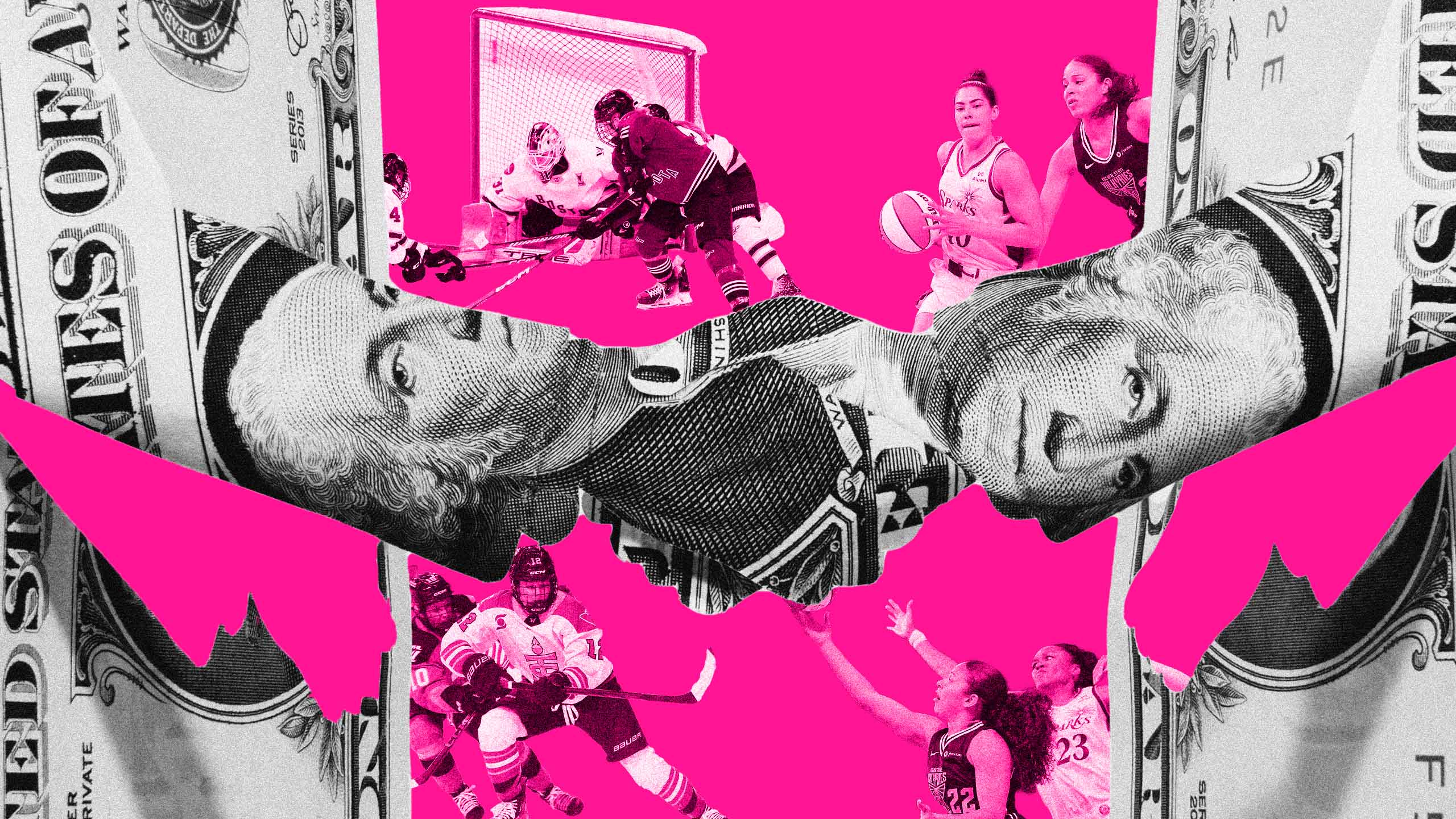
It seems you can’t look anywhere without hearing about the growth and profitability of women’s sports. The refrain has gone from “no one watches women’s sports” to “everyone watches women’s sports” in a matter of just a few years. For longtime fans of women’s basketball, women’s soccer and women’s hockey, the meteoric growth of leagues like the Women’s National Basketball Association (WNBA), National Women’s Soccer League (NWSL) and Professional Women’s Hockey League (PWHL) can feel exciting. But with all this growth comes more complicated feelings too.
The argument for investing in women’s sports often falls along capitalist lines such as “there’s money to be made here, and it would be unwise to pass it up.” A new report from Deloitte estimates that global revenue generated by elite women’s sports will exceed £1.8 billion (approximately $3.3 billion in Canadian dollars) in 2025. With investment opportunities increasing exponentially, women’s pro sports leagues are signing sponsorship deals with major companies left and right. However, which brands these leagues are choosing to partner with now that there is money available is increasingly at odds with the presumably progressive values these leagues have been perceived to have by long-time fans.
The WNBA players, in particular, have made a name for themselves with their commitment to racial justice activism and social justice advocacy cause that they dedicate each season to (there is even a documentary about their activism, called Power of the Dream). In women’s soccer, the U.S. Women’s National Team’s fight for equal pay often transfers to perceptions of the NWSL because many of the same players are represented. Even though those values and actions come from the players themselves, the public perception often applies those views to the leagues as a whole. In the public sphere, the distinction between the league (a corporation with its own interests in mind) and the players (individual workers with their own views) is often flattened.
Take, for example, the WNBA, whose season starts this week. It will be the league’s most talked-about season since its launch nearly 30 years ago. With a brand-new team in the Golden State Valkyries and Canadian expansion set for 2026 with the Toronto Tempo, all eyes are on the W and everyone wants a piece of the pie. Their partnership with Amazon Prime to stream games is continuing this season, with 25 games streaming on the platform. The WNBA isn’t the only league with an Amazon partnership either. The NWSL also streams games on Prime.
But the NWSL’s partnership with Amazon is baffling when you consider that it is a league currently in the process of a rebrand following their disturbing sexual abuse scandal and continued and ongoing workplace harassment crisis. Not only that, but the league has leaned heavily on lip service around progressive values in order to change the public’s perception of it and has benefitted mightily from that strategy.
“Why would a league that is being heralded as “a beacon of social and political activism” think that partnering with Amazon would align with its values?”
“Under [Commissioner Jessica] Berman’s leadership … the NWSL has become a sporting beacon of social and political activism,” a 2024 report from SportsPro explained data from Luscid, a platform that tracks sport and entertainment data, measured “the league’s key marketing strengths”—which included “community impact”—and cited Amazon as one of the blue-chip companies the league has signed recently. These new partnerships moved the total annual value of the NWSL’s portfolio to over $24.5 million—a fourfold increase from 2021.
But why would a league that is being heralded as “a beacon of social and political activism” think that partnering with Amazon would align with its values? Amazon is well known to be a company that, among other things, exploits workers, puts them in unsafe working conditions, helps fund ICE, has a terrible environmental record and is single-handedly responsible for killing bookstores. Perhaps for the same reason they thought their new partnership with Alex Cooper’s Unwell Hydration drink was a good idea? Cooper, the host of the popular Call Her Daddy podcast, is a former employee of Barstool Sports and has done little to distance herself or her brand from Barstool’s toxic and offensive content in the years since she left the company. Not only that, her Unwell Hydration beverage is a Nestlé product, which is currently the subject of multiple boycotts for reasons that include political, environmental and human rights concerns. In Canada, the company faces boycotts from the Council of Canadians and the indigenous rights organization Lakota People’s Law Project for extracting water from watersheds that have recently seen droughts. All of the leagues have at least one official partnership with a company that is on the Boycott, Divest and Sanction (BDS) list.
Or take the glut of weight-loss drug ads that permeate women’s sporting events. During the PWHL’s “Takeover Tour,” in which the league travelled to host cities who don’t have their own teams in order to promote the game, ads for Wegovy could be seen on in-game monitors. The WNBA’s Minnesota Lynx have a partnership with the weight-loss program Livea and the Indiana Fever have an Eli Lilly patch on their uniforms (Eli Lilly is the company that produces the GLP-1s Mounjaro and Zepbound). These drugs, when advertised to treat “obesity” as the presenting problem, can promote fatphobic and dangerous body image ideals—especially for the young girls watching at home, who represent the fastest-growing fan demographic.
Even the rash of new beauty campaigns is not without concern. As makeup companies like Sephora sign partnerships with Unrivaled, the off-season women’s basketball league, and WNBA teams like the Toronto Tempo, Fenty Beauty becomes the official sponsor of the WNBA’s New York Liberty and Maybelline Cosmetics partners with the new Women’s Lacrosse League, centuries-old anxieties about women athletes and femininity are reinforced. Masculine-of-centre athletes get far fewer endorsements and brand deals, reinforcing oppressive hierarchies and income disparities, as well as perpetuating queerphobia.
The financial consequences of these regressive beauty standards would be concerning enough on their own, but in a time of increased “transvestigations” of women athletes, the focus on platforming traditionally feminine athletes is far more insidious than it may first appear. Trans women and girls are increasingly being viewed as a threat to not only women’s sports, but to the safety and security of cis women as a whole, which is quietly reinforced by the focus on these highly feminized beauty campaigns.
It’s also insidious because brands are capitalizing on a highly motivated and incredibly trusting market in women’s sports fans. Research has found that WNBA and women’s sports can “enhance a brand’s image by demonstrating its commitment to social responsibility, gender equality and empowerment.” When a company advertises with one of these leagues, those values become associated with their brand, too. Nielsen’s Fan Insights found that 44 percent of WNBA fans have visited a brand’s website after seeing WNBA sponsorships during a game and 28 percent have bought from a sponsoring brand. Ads aired during the 2024 WNBA regular season through the end of May were a remarkable 26 percent more likely to spark consumer engagement than the 2023 WNBA season average. And women athletes are far more likely to convert buyers than their male counterparts, with a recent study revealing that U.S. consumers are more likely to purchase sports tech products from Caitlin Clark, Simone Biles and Serena Williams over comparable male athletes.
And yet, sponsorships and endorsements, which are only really given to the most elite teams and athletes, inevitably worsen systemic inequalities like sexism, racism, transphobia, classism and ableism. “Just as in men’s sport and wider society, it is the ‘ruling elite’ who control elite, competitive, commercialized sport, that stand to gain the most when growth is the primary objective,” Evie Ashton wrote in the It’s Just a Game newsletter. “When elite sport makes more money, financial brokers, shareholders, wealthy top executives, conservative politicians and upper-middle class people extend their power.”
The evidence for this can be seen in the names who are buying into pro women’s teams. Last season, Julia Koch, an American socialite who is one of the richest women in the world, and her son, David, Jr., bought a 15 percent stake in the WNBA’s New York Liberty. The move to sell part of the team to the Koch family raised eyebrows among fans, some of whom launched a petition asking Koch to donate $15 million of her own money to causes supported by WNBA players. The petition was started by the group behind Althea’s, the queer women’s sports bar in Brooklyn,, which is set to open in late spring.
WNBA players care about who they play for and who represents them—the WNBA’s social justice initiative for the 2024 season involves reproductive justice and civic engagement. The Kochs have a long history of making donations to political candidates that often work against these interests, donating exclusively to Republican candidates. Meanwhile, the NWSL team Angel City FC, which made its name being a majority-women-owned club, was sold to Disney CEO Bob Iger.
“The men’s pro sports model didn’t rise out of a neutral condition; it owes its success to empire and oppressive conditions which were explicitly designed to sustain it and which are protected by the most powerful people in society,” Zoë Hayden wrote at The Victory Press in 2019. “Women’s sports … were not meant to succeed under these conditions, and in an attempt to do so, they both intentionally and unintentionally align themselves with empire and with capitalism instead of trying to change the conditions themselves.” As a result, women’s sports leagues come to reinforce oppression rather than becoming the forces for social, political and cultural justice that they have the potential to be.”
All of this raises larger questions around whether women’s sports finding mainstream success is at odds with the stated values of its players—and its fans. At the same time, it’s a double-edged sword: true equality means not expecting more from a women’s league than we would from a men’s league, and these aren’t questions that men’s leagues are expected to be able to answer. But doesn’t progress look like trying to make a better future for the multiply-marginalized athletes and fans who have built women’s sports into the juggernaut they are today?
These are questions that will plague these women’s leagues as they continue to grow. The answers will determine what kind of future women’s sports wants to have for itself, but I fear that future may not be an equitable one.
NIL
Report: Tennessee-adidas deal includes multi-million dollar NIL component
After more than a decade, Tennessee announced it was returning to adidas as part of a 10-year contract. Through the agreement, though, the Vols will also be in position for NIL success. In the announcement, Tennessee said the deal with adidas includes “unprecedented NIL opportunities” for athletes at the school. Yahoo! Sports’ Ross Dellenger reported […]
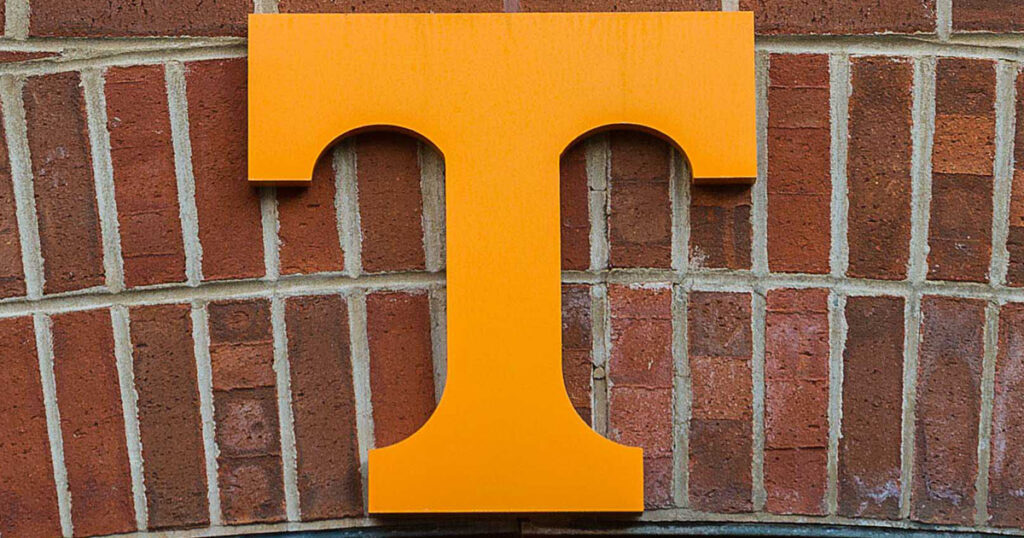
After more than a decade, Tennessee announced it was returning to adidas as part of a 10-year contract. Through the agreement, though, the Vols will also be in position for NIL success.
In the announcement, Tennessee said the deal with adidas includes “unprecedented NIL opportunities” for athletes at the school. Yahoo! Sports’ Ross Dellenger reported players will get a slice of the pie, and adidas is even working quickly to secure deals with Vols athletes this school year. The new contract doesn’t officially start until next school year.
Advertisement
The NIL component of Tennessee’s deal with adidas – which could be worth at least $10 million, according to Dellenger – is especially important in the post-House v. NCAA settlement landscape. Under the agreement, schools can share up to $20.5 million directly with athletes through revenue-sharing. However, there isn’t a cap on third-party NIL deals, meaning adidas can effectively help with “over-the-cap” opportunities.
“The arms race was originally about facilities,” said Chris McGuire, adidas Vice President of Sports Marketing for North America, while speaking with Yahoo! Sports. “Now it’s gone to rev-share and NIL. We want to make sure we provide opportunities to our partners that are competitive in the marketplace so they’ll have competitive teams on the field.”
If Tennessee athletes sign an NIL deal with adidas, they would be able to wear the company’s products in games once the new agreement gets in place. This year, though, those athletes would have to wear Nike apparel until that deal expires.
Adidas is active in the football NIL space
Adidas has been active in the NIL space, including signing multiple highly rated recruits as part of the adizero Class of 2025, headlined by five-star LSU commit and top wide receiver prospect Tristen Keys. No. 1-ranked linebacker Tyler Atkinson is also on board, giving adidas two of the 10 highest-rated 2026 recruits on its growing athlete roster.
Advertisement
Ohio State wide receiver commits Chris Henry Jr. and Kayden Dixon-Wyatt are both part of the initiative, as is Texas A&M commit Madden Williams. Five-star receiver Calvin Russell, who ranks as the No. 4-ranked wide receiver in the country, rounds out the group.
Ohio State star wide receiver Jeremiah Smith also became the latest active college football player to sign an NIL deal with adidas, though the Buckeyes are a Nike school. Former Miami quarterback Cam Ward was also did so last year, and the company also struck quickly ahead of the NFL Draft by landing top picks Travis Hunter and Abdul Carter as part of its rookie class.
More on Tennessee’s new agreement with adidas
Tennessee left adidas in 2014 to sign with Nike, and the amended deal runs through 2026. Through the partnership, the university is due to receive $1.2 million in base compensation in 2025-26 and $4.5 million in annual product allotment.
Advertisement
UT initially signed its deal with Nike in 2014, and the original contract paid the school $7.6 million through 2022-23. However, the amendment increased that figure to 11.6 million over 11 years and increased the scheduled payment to $1.2 million for the final three years of the agreement, starting in 2023-24.
“The role of a college athletics sideline partner has changed dramatically in the 11 years since we last partnered with Tennessee Athletics,” said adidas Vice President of Sports Marketing for North America Chris McGuire in a release. “adidas is establishing a new standard for investment in NIL with this partnership that will sustain UT’s powerful athletics program as the university continues competing for championships for years to come.”
NIL
Dawn Staley: South Carolina women’s basketball to sign NDAs for revenue sharing
South Carolina head women’s basketball coach Dawn Staley recently sat down with former First Lady Michelle Obama on her podcast to discuss the recent growth in attention on women’s sports, but may have made some news when the topic veered into the future of revenue-sharing in collegiate athletics. The landmark House v. NCAA Settlement, which […]

South Carolina head women’s basketball coach Dawn Staley recently sat down with former First Lady Michelle Obama on her podcast to discuss the recent growth in attention on women’s sports, but may have made some news when the topic veered into the future of revenue-sharing in collegiate athletics.
The landmark House v. NCAA Settlement, which was approved June 6 but went into affect July 1, awarded colleges the opportunity to share as much as $20.5 million with its student-athletes as part of a $2.8 billion antitrust settlement that effectively ended the NCAA’s outdated “amateur” model.
During her Aug. 13 appearance on “IMO with Michelle Obama and Craig Robinson,” Staley revealed her Gamecocks players must sign non-disclosure agreements (NDAs) in order to receive any revenue-share money from the university, to which the former First Lady agreed that college athletes don’t need to know each other’s rev-share take, according to the Greenville News.
“Now whether they can stick with that or not, some of them get disgruntled and maybe transfer and just say what ‘I was making (amount)’ and it can stir up the pot but I’m very honest,” Staley said June 10, when the episode was recorded, per the Greenville News. “I’ll tell them, there’s a reason why you get paid this and you get paid that. I’ll explain that to them.”
Michelle Obama was particularly interested in how college athletics’ new financial opportunties, including NIL, have already impacted locker rooms, especially among women’s athletics, which are only slotted to receive a fraction of each school’s $20.5 million cap figure. For her part, Staley said she hasn’t personally seen any detrimental impact yet.
While not a hardline dispursment figure, as schools can spend their allotted revenue-share as they see fit, football programs are expected to receive roughly 75-percent with men’s basketball garnering 15-percent. That leaves the remaining 10-percent of the $20.5 million to be split between women’s basketball (5%) and all other sports (5%), an issue that’s already resulted in multiple Title IX lawsuits against the settlement.
Staley made it clear to Obama that she’s been upfront in all financial conversations she’s had with her South Carolina athletes, including having direct conversations with their respective agents when necessary, though several of her players have the same agents, according to the Greenville News.
While South Carolina hasn’t specifically revealed how it will dispurse its revenue-share allotment, Staley confirmed to Obama that it’s “probably $20 million per school, but that’s football, that’s men’s basketball and maybe sprinking women’s basketball and other Olympic sports,” per the Greenville News.
Staley, who won her third NCAA Division I National Championship last season and remains one of the sport’s winningest coaches in major women’s college basketball, specifically cited the impact revenue-sharing and NIL have had to recruiting as “the difficult part,” according to the Greenville News.
“The market says that if you’re a non-contributor and you go into the portal, they can go ask a school like us for $100,000,” Staley said, per the Greenville News. “If I entertain that, they’re going to take it to another school, (and say) ‘Hey, South Carolina offered me a hundred grand, you got $150,000?”
Difficulties aside, Staley called for college athletics to find a way to balance that allows smaller sports to continue to embrace the amateur and scholastic side of collegiate sports while also allowing student-athletes to “benefit” financially from their own name, image and likeness.
“I’m supportive of it, I really am,” Staley said, per the Greenville News. “I think it’s long overdue. … (But) we got to find a way to balance. To keep it an amateur sport while allowing young people to go out there and benefit from their name, image and likeness.”
NIL
Univ. of South Carolina women’s basketball coach Dawn Staley says players sign NDAs around NIL deals
Univ. of South Carolina women’s basketball coach Dawn Staley said that she “has players sign non-disclosure agreements” in an “attempt to prevent players from telling each other how much they’re making from NIL deals or revenue sharing,” according to Michael Sauls of the Columbia STATE. Staley, appearing on “IMO with Michelle Obama and Craig Robinson,” […]

Univ. of South Carolina women’s basketball coach Dawn Staley said that she “has players sign non-disclosure agreements” in an “attempt to prevent players from telling each other how much they’re making from NIL deals or revenue sharing,” according to Michael Sauls of the Columbia STATE. Staley, appearing on “IMO with Michelle Obama and Craig Robinson,” said that the NDAs are “one way she keeps the money players receive from affecting South Carolina’s locker room” and “no revenue discussions have yet to affect the locker room.” Sauls notes Staley is “supportive of this new era of college athletics that finds the players benefiting more than ever from a monetary standpoint,” but she “feels additional control is needed.” Staley is “believed to be one of the few, perhaps the only, head coach at South Carolina who prefers to directly handle” the program’s NIL discussions. South Carolina has “not made its own distribution breakdown public, but Staley has long argued for a larger piece of the rev-share pie.” Staley said, “We’ve got a certain amount of money that we have to work with, and I don’t over-promise.” She added, “I do some innovative things as well to help our players out in this space. We play games for money, and that money goes directly to our players, things like that.” Sauls notes South Carolina will be playing in the Players Era Women’s Championship, which will provide players with at least $1M of “NIL opportunities in each year that it participates” (Columbia STATE, 8/13).
NIL
Women’s Soccer Kicks Off 2025 Season with Home Games Against Southern Miss, Ole Miss
MEMPHIS, Tenn. – Another athletic year is set to begin at the University of Memphis, and as usual, women’s soccer will be the ones to set the stage. The 15-time conference champions will open the regular season with two home games, beginning against Southern Miss at 6 p.m. on Thursday, August 14. They will battle with […]
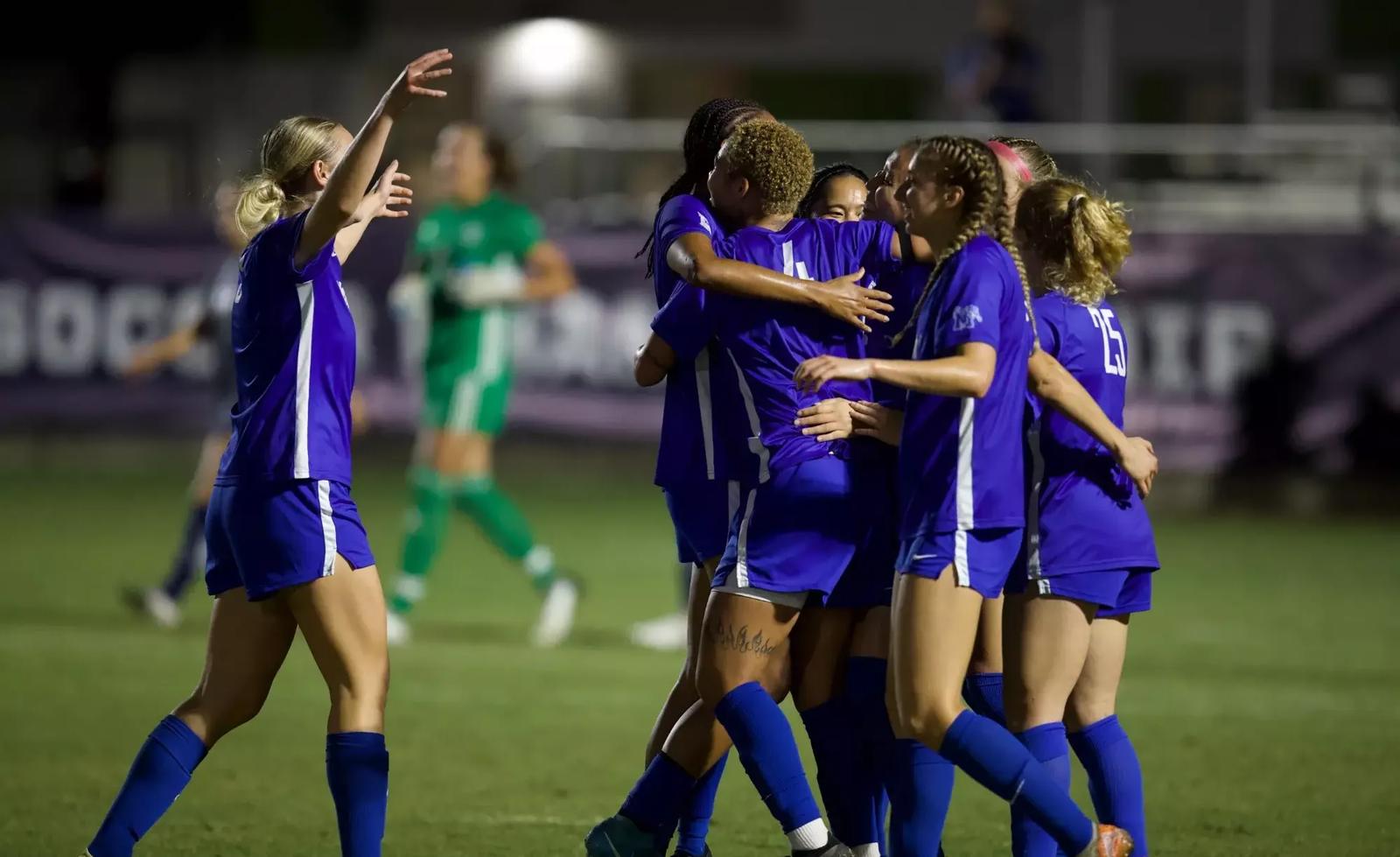
MEMPHIS, Tenn. – Another athletic year is set to begin at the University of Memphis, and as usual, women’s soccer will be the ones to set the stage.
The 15-time conference champions will open the regular season with two home games, beginning against Southern Miss at 6 p.m. on Thursday, August 14. They will battle with Ole Miss on Sunday, August 17, at 7 p.m. With limited bleacher seating at the under-construction Track and Soccer Stadium, fans are encouraged to bring their own chairs for home games in 2025.
With 14 freshmen, 12 sophomores, two juniors and one senior, the 2025 team is the youngest in program history. They are not short of returning production, however, as they bring back their two best goal contributors in junior forward Ashley Henderson (nine goals, three assists) and sophomore midfielder Ai Kitagawa (six goals, six assists).
Also returning to the regular season champions is junior defender Finley Lavin, who has been a mainstay in the Tiger lineup since her freshman season. The trio was named to the American Conference Preseason Watch List and will be expected to carry heavy workloads throughout the center of the pitch.
“You want to make sure the spine of your team is shored up, and having real experience in those positions definitely helps,” said head coach Brooks Monaghan.
Several players took advantage of their enlarged roles in the spring to carve themselves a spot, and even more have done so in recent weeks. Despite the team’s relative youth, Monaghan hasn’t lowered the championship standard heading into his 26th season.
“The biggest thing is kids adapting to ‘Memphis Soccer.’ You don’t know how hard it is at this level until you’re here. Communication is key, and we really rely on the leadership from returning players just as much as the staff. If we can stay healthy, I’m really optimistic about where we’re at.”
With five power five opponents in the non-conference slate, August could prove to be a crucial month in the trajectory of this team’s season.
Game One: Southern Miss
The Lady Eagles will roll into town on college soccer’s opening night for the 16th match overall between the teams and the first since 2012. After losing the first four battles with USM in the program’s early days, Memphis has rattled off 11 straight wins against their former Conference USA foes. The combined score of those 11 matchups, spanning from 2002 to 2012, is 33-6.
Southern Miss is coached by Mohammed El-Zare, who has been at the helm of the program since 2013. Last season, they went 3-7-5, posting a six-game unbeaten streak near the end of the year in a push for the Sun Belt tournament, which they fell just short of.
Forward Raquelle Mitchell returns to Hattiesburg for her sophomore season, coming off a freshman campaign where she posted four goals and three assists.
Game Two: Ole Miss
In what has become one of the region’s biggest college soccer rivalries, Memphis will look to pick up a third consecutive victory over the Rebels for the first time in program history. Ole Miss won the first three matchups in the history; since then, it is 11-10 in favor of Memphis with three draws, and neither team has won more than two in a row. Last season, Kitagawa announced her arrival with two goals in an eight-minute span in the second half as the No. 8 Tigers won in Oxford, 2-1.
Ole Miss was slated to battle MVSU at home in their season-opener on Thursday; the match has been canceled due to “personnel traveling issues.” The Rebels will play an exhibition against William Carey in its place before officially opening the season in Memphis.
Molly Rouse is in her third year as Ole Miss head coach; she has accumulated a record of 12-20-4 through her first two seasons, and is 0-2 against Memphis. Returners Tate Blincoe, Lauren Montgomery and Katie Ramsden were all named to the SEC Preseason Watchlist.
Tiger Tidbits
How to follow the Tigers: For complete information on Memphis Tigers Soccer, visit www.GoTigersGo.com and follow the team’s social media channels on Twitter, Instagram and Facebook.
NIL
Tennessee to reunite with Adidas as apparel partner in 2026
Tennessee is returning to a familiar face on the clothing front. The university announced Wednesday afternoon that is reuniting with Adidas as the official footwear, uniform, apparel and sideline partner of Volunteers and Lady Vols athletic teams. The 10-year agreement will go into effect on July 1, 2026. “Our mission is to build the premier […]



Tennessee is returning to a familiar face on the clothing front.
The university announced Wednesday afternoon that is reuniting with Adidas as the official footwear, uniform, apparel and sideline partner of Volunteers and Lady Vols athletic teams. The 10-year agreement will go into effect on July 1, 2026.
“Our mission is to build the premier athletics department in the country and to lead the way in college sports,” Tennessee athletic director Danny White said through a release. “Partnering with adidas is an ideal fit, as is their mission to be the best sports brand in the world. There is no denying the resurgence of Tennessee athletics, which is powered by the greatest fan base in all of sports. Our strong licensing numbers, impressive television ratings, and sold-out venues all reflect this. We appreciate that adidas recognized our potential and responded with one of the best apparel deals in the history of college sports, prioritizing Vol Nation and the Tennessee brand.
“This partnership provides us with a significant advantage in the ever-evolving landscape of college sports. We take pride in our fan base and the competitive edge they offer us. We refuse to partner with someone who does not feel the same way.”
Tennessee and Adidas partnered from 1995 to 2014, with that stretch highlighted by the Vols winning college football’s national championship for the 1998 season and Pat Summitt guiding the Lady Vols to five of her eight national crowns in women’s basketball. The school then linked with Nike for what will wind up being a 12-year run.
Candace Parker was the star of Tennessee’s 2007 and 2008 national championship teams, and Adidas named her the company’s president of women’s basketball on May 8, 2024.
“This marks an important moment for our organization as we reestablish our partnership with the University of Tennessee, which shares our commitment to providing student athletes and fans with best-in-class product and opportunities that not only elevate college athletics, but redefine the future of college sports,” John Miller, the Adidas president for North America, said in the release.
According to the release, the partnership between Tennessee and Adidas will offer “unprecedented NIL opportunities for student-athletes across all 20 of the university’s varsity programs.” Tennessee is scheduled to receive $1.2 million in base compensation during its final year with Nike and $4.5 million in annual product allotment, but terms of the Adidas pact were not immediately known.
Fox Sports Knoxville reported in May that Tennessee was mulling a new apparel deal with Adidas and that the likelihood of a departure from Nike was “high.”
Contact David Paschall at dpaschall@timesfreepress.com.
NIL
Tennessee athletics switching from to Adidas from Nike in 2026
University of Tennessee athletics will switch from Nike to Adidas in 2026 as its official apparel supplier. Knox News reported the 10-year deal along with an exclusive interview with Chris McGuire, Adidas Vice President of Sports Marketing. UT and Adidas made the official announcement on Aug. 13. Adidas will become UT’s official footwear, uniform, apparel and […]
University of Tennessee athletics will switch from Nike to Adidas in 2026 as its official apparel supplier.
Knox News reported the 10-year deal along with an exclusive interview with Chris McGuire, Adidas Vice President of Sports Marketing. UT and Adidas made the official announcement on Aug. 13.
Adidas will become UT’s official footwear, uniform, apparel and sideline partner, beginning July 1, 2026. It had previously served as the Vols’ apparel provider from 1995 to 2015.
Nike will remain the Vols’ apparel and uniform supplier for the 2025-26 academic year while UT prepares for the switch to Adidas. Nike did not make a counter offer to the Adidas bid.
Who will design Tennessee uniforms?
UT designs its own uniforms in house and collaborates with the brand to bring them to the field, the court and official team stores.
That doesn’t guarantee that fans will like every uniform design. But it does ensure that UT won’t be caught off guard by a color scheme or design that it did not intend.
The change from Nike to Adidas could be a divisive decision among UT fans.
During the previous partnership, there were highs like the Vols wearing Adidas football jerseys during the 1998 national title season. And there were lows like the awkward uniform designs during sub-par football seasons late in the Adidas era.
But the Adidas contract will help fund UT’s revenue sharing pool to pay athletes.
Plus, Adidas prioritizes college sports, so it could open doors to national branding campaigns for elite UT athletes with signature NIL deals. At Nike, most of those opportunities were reserved for NFL and NBA players.
That’s a new concept in the NIL era, where schools can facilitate corporate contracts for their athletes. National campaigns then feature those college athletes in ways they couldn’t do in the previous era.
How Tennessee let Nike go
UT’s contract with Nike runs through June 30, 2026, according to the amendment provided by the university to Knox News.
The deal was initially set to run through 2023, but former AD Dave Hart signed an extension through the 2025-26 academic year.
Nike is scheduled to pay Tennessee $1.2 million in base compensation in 2025-26, with an annual product allotment of $4.5 million. UT gets an annual Nike ELITE credit of $100,000 for the athletics department and an additional $100,000 for football, men’s basketball, women’s basketball and administration.
Per the contract, UT and Nike began negotiations for extending the deal in late 2024. But that exclusive negotiating window ended March 30.
That’s when Adidas and other brands came into the picture. Nike could’ve matched the highest bid, but it did not.
The Vols are a popular brand in college sports. They have an enormous fan base and enjoy the widespread exposure of the SEC. That made UT a coveted client, and Adidas submitted a bid that wouldn’t be beaten.
Adam Sparks is the Tennessee football beat reporter. Email adam.sparks@knoxnews.com. X, formerly known as Twitter@AdamSparks. Support strong local journalism by subscribing at knoxnews.com/subscribe.
Get the latest news and insight on SEC football by subscribing to the SEC Unfiltered newsletter, delivered straight to your inbox.
-

 Technology2 weeks ago
Technology2 weeks agoAlly Runs New Game Plan in WNBA All-Star Rookie Debut
-
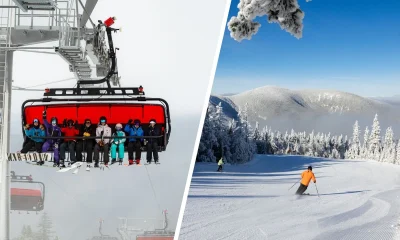
 Health2 weeks ago
Health2 weeks agoThe Women Driving A New Era In U.S. Ski & Snowboard
-

 High School Sports3 weeks ago
High School Sports3 weeks ago100 days to men's college basketball
-

 NIL2 weeks ago
NIL2 weeks agoESPN Announces 'dont wait run fast' by mgk as New College Football Anthem for 2025
-

 College Sports3 weeks ago
College Sports3 weeks agoCity rows to sporting destination goal on boats of new complexes & old strengths
-
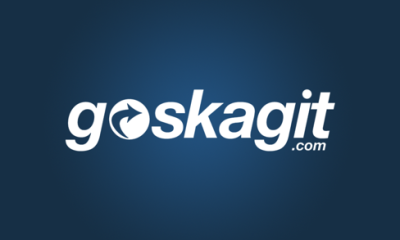
 Sports3 weeks ago
Sports3 weeks agoNtekpere honored as Second Team Academic All-American | APG State News
-

 Rec Sports1 week ago
Rec Sports1 week agoSwimming & Diving Comments on the Rules – 2025-26
-

 Health3 weeks ago
Health3 weeks agoTrump administration investigates Oregon's transgender athlete policies
-

 Technology1 week ago
Technology1 week agoAmid Sports Chaos, ‘Known’ Data and Outcomes Help Agency Win
-

 Sports3 weeks ago
Sports3 weeks agoMore State Schools of the Year
































